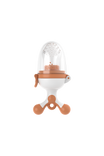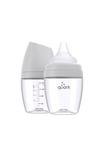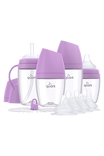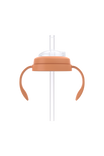Back to Work After Baby: How to Balance Parenthood and Career
Returning to work after having a baby is a major life transition. Between feeding schedules, work deadlines, and trying to get enough sleep, it can feel overwhelming. This guide offers practical strategies to help you manage both work and family life.
1. Building a Family Schedule
A shared family calendar helps prevent scheduling conflicts and keeps everyone on the same page. Digital tools like Google Calendar or Cozi work well because they sync across devices, but a simple wall calendar can be just as effective.
What to include:
- Childcare arrangements and pickup times
- Medical appointments
- Work meetings and travel
- Daycare or school events
- Time for yourself
Consider color-coding by person or activity type to make it easier to scan at a glance.
2. Choosing Trustworthy Childcare
Finding the right childcare is one of the most important decisions you'll make. Whether you choose a nanny, home daycare, or childcare center, take your time researching options.
Key steps:
- Ask for recommendations from other parents
- Schedule visits to observe the environment
- Check licensing and background checks
- Trust your instincts about the caregiver's interactions with children
Once you've chosen a caregiver, establish regular communication. Daily updates about feedings, naps, and activities help you stay connected to your baby's day.
3. Partnering for Parenting Success
If you have a partner, divide responsibilities in a way that works for both of you. Sit down together to discuss:
- Morning and evening routines
- Household tasks
- Who handles doctor visits
- What to do when your baby is sick
Having these conversations before you return to work prevents confusion when you're both stressed and tired.
4. Simplifying Your Mornings
Mornings with a baby require preparation. The night before:
- Pack the diaper bag and your work bag
- Lay out clothes for you and your baby
- Prepare bottles if you're bottle-feeding
- Set out quick breakfast options
A consistent routine makes mornings smoother for everyone.
5. Cultivating Support and Flexibility at Work
Talk with your employer about what you need to succeed. This might include:
- Flexible start times or remote work options
- Understanding about sick days
- Accommodations for medical appointments
If you're breastfeeding, know your rights. Companies with 50 or more employees must provide break time and a private space (not a bathroom) for pumping.
6. Creating Consistent Sleep Routines for Your Baby
A predictable bedtime routine helps your baby sleep better. This might include a bath, feeding, reading a book, and singing a lullaby.
If your baby doesn't nap well at daycare, an earlier bedtime at home can help them get enough rest. Tracking sleep patterns can help you identify what works best.
7. Making Dinner Time Simple and Enjoyable
You don't need elaborate meals every night. Simple strategies include:
- Meal prepping on weekends
- Using a slow cooker or instant pot
- Making one-pan meals for easy cleanup
- Keeping simple foods like fruit and cheese available
- A baby food maker like this one can help cut down on time spent cooking, while ensuring your little one gets their nutrition.
8. Prioritizing Parental Self-Care
Taking care of yourself isn't selfish. Even small breaks matter, whether it's a walk around the block, a yoga class, or reading for 20 minutes.
Schedule these moments like you would any other appointment. When you're rested and recharged, you're a better parent and employee.
9. Maintaining a Professional Network
Stay connected with colleagues and your professional community. This provides both emotional support and career development opportunities. Online groups for working parents can be particularly helpful—they understand the unique challenges you're facing.
10. The Art of Saying "No" Gracefully
You can't do everything, and that's okay. It's fine to:
- Skip social events when you need rest
- Decline volunteer requests that don't fit your schedule
- Set clear boundaries at work
Consider outsourcing tasks like cleaning or grocery delivery if your budget allows. The time you save can go toward family or rest.
11. Maximizing Focus and Productivity
When you're at work, focus on what matters most. Start each day with a short list of priorities and work through them systematically. Minimizing distractions helps you finish work efficiently so you can be present at home.
12. Strengthening Emotional Bonds
Quality matters more than quantity. Embrace the small moments—morning cuddles, bedtime stories, or weekend playtime. Even brief connections throughout the day build a strong bond with your baby.
Remember that being a working parent doesn't mean doing everything perfectly. It means showing up with love and doing your best.
Conclusion
Balancing work and parenthood is an ongoing process. Some days will go smoothly, others won't. Be patient with yourself, lean on your support system, and adjust as you learn what works for your family.
You're doing better than you think.






















Laisser un commentaire
Tous les commentaires sont modérés avant d'être publiés.
Ce site est protégé par hCaptcha, et la Politique de confidentialité et les Conditions de service de hCaptcha s’appliquent.